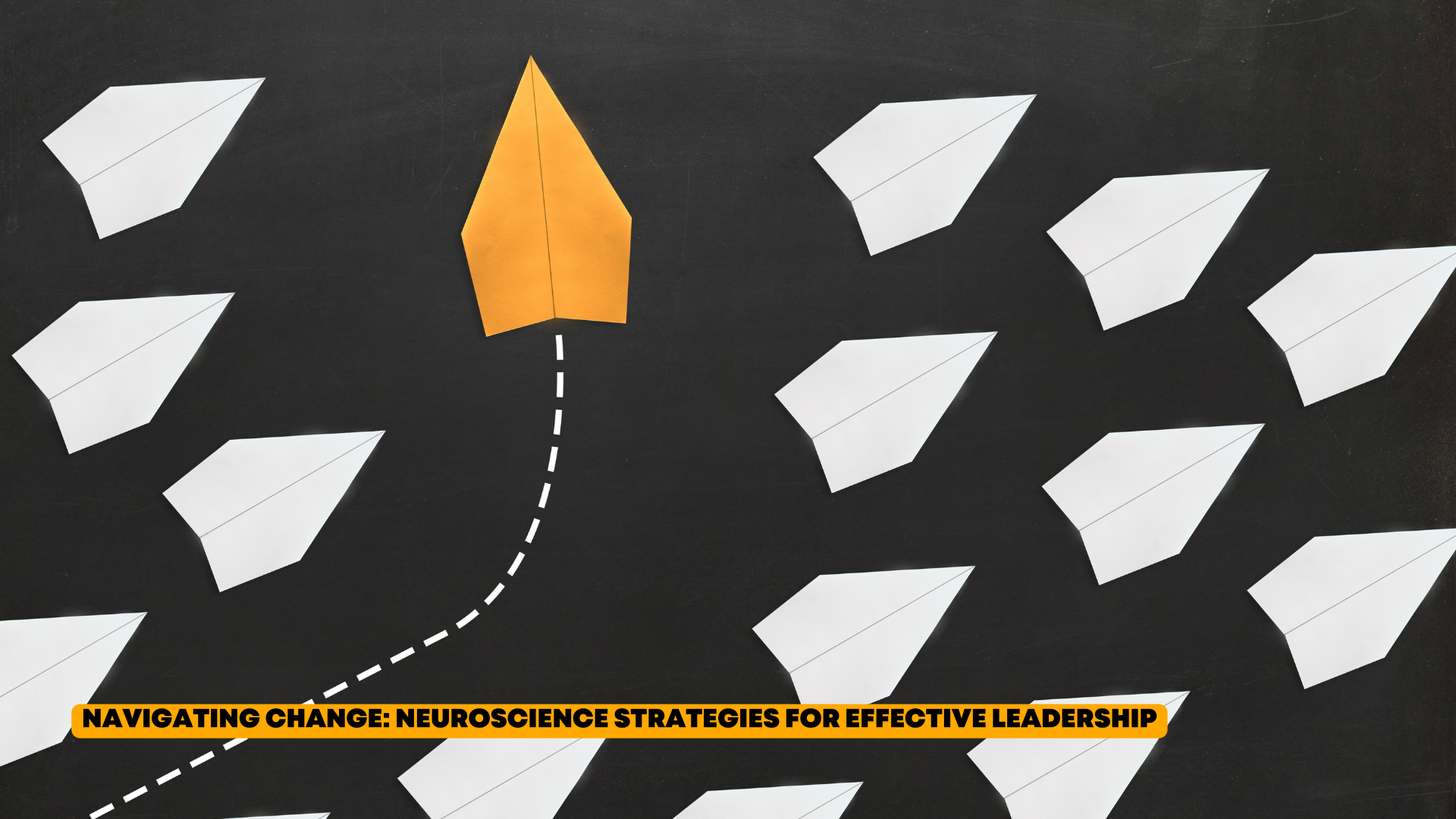Rethinking Performance Reviews: A Neuroscience Approach to Fostering Peak Performers
It’s performance review season at a fast-growing tech company. The office hums with a mix of anticipation and unease. Developers, marketers, and managers line up for their turn, hoping for clarity but bracing for the usual vague feedback. These reviews are supposed to supercharge productivity and morale.
But do they?
Then there’s Sarah. She’s a rockstar software engineer who crushed it last year and got stellar feedback. But this year? The company’s scaled, the metrics have shifted, and she’s walking into her review with a knot in her stomach. The result? Generic feedback. No real acknowledgment of her impact, no actionable insight. She leaves the room not motivated, but deflated. “Is this really it?” she thinks.
This story plays out daily in scaling tech companies. The traditional performance review isn’t built for the high-speed, ever-changing environment of a scale-up. It’s outdated, one-size-fits-all, and leaves your top performers feeling unseen.
But it doesn’t have to be this way.
Now, imagine flipping the script. Imagine using neuroscience-backed systems to transform performance reviews into a game-changing tool for creating elite performers. What if the secret to unlocking your team’s full potential was already sitting between their ears?
The Problem with Traditional Performance Reviews
In a survey conducted by Deloitte, only 8% of companies reported that their performance management process drives high levels of value, while 58% said it’s not an effective use of time. Traditional reviews, often annual, struggle to keep pace with the rapid changes typical in scaling tech businesses. When feedback loops are too long, they become irrelevant.
Scaling tech companies are unique. They evolve quickly, and their needs today might differ six months later. However, traditional reviews use a standardized approach, failing to account for the diverse roles and individual growth trajectories in these dynamic environments.
A study from CEB (now Gartner) found that 95% of managers are dissatisfied with traditional performance reviews, and nearly 90% of HR leaders question their accuracy. This dissatisfaction trickles down to employees. When reviews are seen as inaccurate or unhelpful, they can demotivate rather than inspire, potentially leading to increased turnover – a critical issue for businesses in the scaling phase.
Often, traditional reviews focus more on past performance and less on future development. In a tech landscape that’s always evolving, what’s needed is a forward-looking approach, encouraging continuous learning and adaptability.
So, what's the alternative? How can scaling tech companies revamp their performance review process to be more effective and aligned with the pace and nature of their business? The answer may lie in our brains – the new frontier of performance management.
Neuroscience Insights Relevant to Performance Reviews
The human brain holds the key to revolutionizing performance reviews in scaling tech companies. Let’s explore some fascinating neuroscience insights that are particularly relevant:
The Brain's Response to Feedback
Neuroscience tells us that feedback is not just about conveying information; it's about how the brain processes it. The SCARF model, developed by neuroscientist David Rock, outlines five domains that influence our behavior in social situations: Status, Certainty, Autonomy, Relatedness, and Fairness. Effective feedback addresses these domains, potentially turning a stressful review into a positive, motivational experience.
Neuroplasticity and Growth Mindset
The concept of neuroplasticity – the brain's ability to change and adapt – is pivotal. Stanford psychologist Carol Dweck’s research on 'growth mindset' aligns with this. In a growth mindset, challenges are opportunities to learn, not insurmountable obstacles. Performance reviews in tech companies should focus on fostering this mindset, encouraging continuous learning and resilience.
The Role of Emotions in Learning and Memory
Emotions play a crucial role in how we process and remember information. Positive emotional experiences, including constructive feedback, enhance our ability to remember and act on that feedback. Negative emotions, however, can trigger the brain’s threat response, hindering learning. Tailoring reviews to be more empathetic and supportive can significantly impact their effectiveness.
Dopamine and Motivation
Dopamine, a neurotransmitter, is often linked to motivation and reward. Recognizing achievements and setting achievable goals during performance reviews can stimulate dopamine release, enhancing motivation and engagement.
The Importance of Personalization
Each brain is unique, which is why personalized feedback is so crucial. Neuroscience suggests that customized approaches to learning and development can significantly boost performance and job satisfaction.
By integrating these neuroscience insights into performance reviews, scaling tech companies can transform them from dreaded annual rituals into ongoing, constructive dialogues that propel employees toward peak performance.
Applying Neuroscience in Performance Reviews
Knowing neuroscience is one thing, but how do scaling tech companies put it into action? Here are practical tips for weaving neuroscience into performance reviews to foster peak performers:
Regular, Real-Time Feedback
The brain craves certainty and thrives on consistent feedback. Annual reviews are too infrequent to keep employees engaged and aligned in fast-moving environments.
How to apply it:
Replace annual reviews with quarterly or monthly check-ins.
Use agile feedback loops that align with ongoing projects.
Share both wins and areas of improvement in real-time to minimize ambiguity.
Employees stay aligned with company goals, adapt faster to change, and reduce the anxiety often associated with annual reviews.
Focus on Strengths and Development
Neuroplasticity and the brain’s growth mindset thrive on focusing on potential, not just past performance.
How to apply it:
Highlight an employee’s strengths during reviews and tie them to their contributions.
Reframe mistakes as learning opportunities, fostering innovation and resilience.
Encourage personal growth plans tailored to individual aspirations.
Employees feel valued for their unique abilities and empowered to improve, fueling motivation and innovation.
Empathetic and Personalized Communication
Every brain processes feedback differently. Empathy reduces the brain’s threat response and fosters a sense of psychological safety.
How to apply it:
Train managers to tailor feedback to individual communication styles.
Use empathy-driven language, e.g., “I see the effort you’ve put into this project” instead of “You need to try harder.”
Build trust by framing feedback as a collaborative effort for improvement.
Employees feel heard and understood, improving engagement and receptiveness to feedback.
Set Clear, Achievable Goals
The brain’s dopamine-driven reward system is activated by clear, actionable goals and celebrates small wins.
How to apply it:
Collaboratively set measurable goals for the short and long term.
Celebrate incremental progress with meaningful recognition.
Tie goals to individual roles and company-wide objectives for alignment.
Motivation remains high as employees feel a sense of achievement and progress toward their goals.
Training for Managers
Managers are the bridge between neuroscience principles and employees. Proper training ensures these insights are effectively applied.
How to apply it:
Host workshops on neuroscience principles like the growth mindset, psychological safety, and effective feedback.
Provide managers with scripts or frameworks for giving constructive, brain-friendly feedback.
Encourage self-awareness in managers to model emotional intelligence.
Managers become skilled in fostering a culture of growth, resilience, and peak performance.
Continuous Learning and Adaptability
The brain thrives on novelty and adaptability, essential traits in the tech landscape.
How to apply it:
Focus reviews on developing future skills, not just evaluating past achievements.
Deliver training programs that keep employees agile and ahead of industry trends.
Encourage a mindset where adaptability is seen as a strength.
Employees are prepared to tackle challenges and stay relevant in a competitive environment.
Utilizing Technology
Technology enables scalable and consistent implementation of neuroscience-based strategies.
How to apply it:
Use tools like performance management software for real-time feedback and goal tracking.
Implement employee sentiment analysis to gauge morale and stress levels.
Introduce gamification elements to make feedback and goal achievement engaging.
Streamlined, data-driven performance reviews that keep employees engaged and aligned with company goals.
The Future of Performance Reviews in Tech
As we look ahead, the intersection of neuroscience and performance reviews holds exciting potential for scaling tech companies. Here’s what the future might hold:
Advanced Brain-Based Tools: With advancements in technology, we can anticipate the development of more sophisticated tools that use neuroscience to provide real-time, personalized feedback. Think AI-driven platforms that analyze employee responses and adapt feedback accordingly, optimizing for brain-friendly experiences.
Integrating Neurofeedback: Neurofeedback technology, which provides immediate feedback on brain activity, could be used to train employees in stress management, focus, and emotional regulation – skills critical in a high-pressure tech environment.
Embracing Holistic Well-being: The future of performance reviews could emphasize overall well-being more. Understanding how work impacts mental health and cognitive function will become crucial. This holistic approach can lead to a healthier, more productive workforce.
Predictive Analytics in Employee Development: Leveraging neuroscience and big data, companies might use predictive analytics to identify potential skill gaps and learning opportunities, customizing development plans for each employee.
Continuous Adaptation and Learning: As the tech industry evolves, so will the understanding of the brain. This continuous learning will enable companies to regularly update their performance review strategies, staying ahead in fostering a culture of peak performance.
Neuroscience offers a groundbreaking perspective in transforming performance reviews from a dreaded formality to a catalyst for growth. By understanding and leveraging how the brain works, scaling tech companies can reinvent their approach to performance management, making it more dynamic, personalized, and effective.
We've explored how regular, real-time feedback, a focus on growth mindset, empathetic communication, and recognizing small wins can significantly enhance the performance review process.
As we move forward, integrating advanced brain-based tools, neurofeedback, holistic well-being approaches, and predictive analytics in employee development are not just possibilities but imminent realities.
These innovations promise to make performance reviews more relevant, motivating, and aligned with the rapid pace of the tech industry.




















